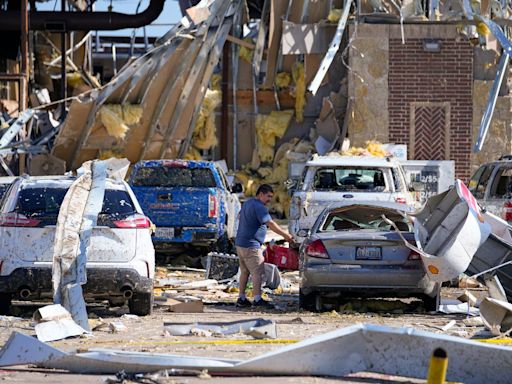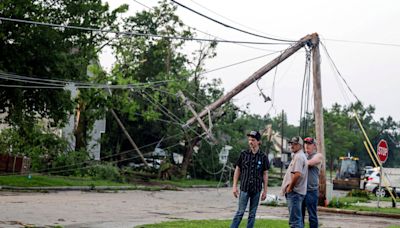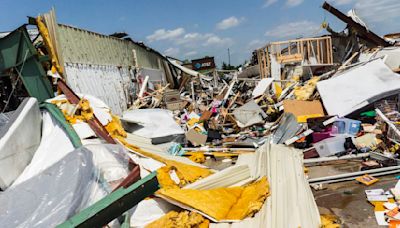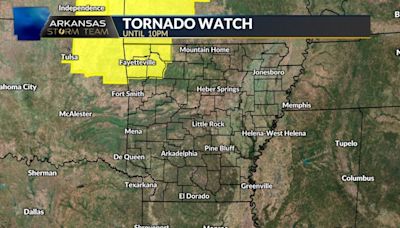Search results
People also ask
Is Fayetteville Arkansas second largest city?
What is the largest city in Arkansas?
Where is Fayetteville Arkansas located?
How many people live in Fayetteville Arkansas?
Fayetteville is a thriving community of 95,230 residents (2021 Census estimate). As the second largest city in Arkansas, Fayetteville provides all of the resources and culture of a large city while maintaining a quality of life that remains true to its unique heritage.
Aug 13, 2021 · Fayetteville is now officially the second-largest city in Arkansas. The city’s population grew from 73,580 in 2010 to 93,949 in 2020, according to the latest U.S. census figures, which were released Thursday. The count puts Fayetteville ahead of Fort Smith, which grew from 86,209 in 2010 to 89,142 in 2020.
Aug 12, 2021 · WASHINGTON — The Census has released its 2020 data which shows the city of Fayetteville has become the second-largest city in the state of Arkansas, surpassing the city of Fort Smith. According to the data released on August 12, Fayetteville had a population of 93,949 on April 1, 2020, compared to Fort Smith’s population of 89,142 on April 1.
Jan 4, 2024 · The largest city in Arkansas is Little Rock, with a population of 201,998. Little Rock is the 118th largest city in the US. The second largest city is Fayetteville , with a population of 95,230, and is the 349th largest city in the US.
- Geography of Fayetteville
- Geology of Fayetteville
- Climate
- Population of Fayetteville
- Economy of Fayetteville
- Tourist Attractions in Fayetteville
- Brief History of Fayetteville
The city of Fayetteville covers a total area of 142.6 sq. km, of which 3.6 sq. km is occupied by water and 139 sq. km is occupied by land. The Interstate 49/US Route 71 is the only fully controlled access route that passes through the area. Fayetteville is bordered on the north by the cities of Johnson and Springdale, whereas on the south, the city...
Fayetteville is situated in the Boston Mountains which is a part of the Ozarks that runs through the northwestern part of Arkansas, the eastern part of Oklahoma, and the southern part of Missouri. Geological studies have revealed that the rocks of the Boston Mountains were formed during the Pennsylvanian period when sandstones and shales were depos...
According to the Köppen climate classification, Fayetteville experiences a humid subtropical climatewith hot summers and cold winters. The hot season lasts from June to September, with July being the hottest month, having an average high temperature of 31.5°C and a low temperature of 20.8°C. The cold season lasts from November to February, with Jan...
Fayetteville is the second-most populated city in Arkansas, and as per the latest 2020 United States Census, about 93,949 people live in the city of Fayetteville. The city’s population has increased since the 2010 census, which showed that the city was home to 73,580 people. About 73.69% of the city’s population is considered White, followed by the...
Dillard’s, J.B. Hunt, Murphy Oil, Tyson Foods, Walmart, and Windstream are the six Fortune 500 companies based in Arkansas. These companies have a significant impact on the economy of Fayetteville through the University of Arkansas. In addition to this, the city's local economy is also driven by farm-based industries, food processing industries, an...
University of Arkansas Campus Historic District
The city of Fayetteville is best known as the home of the flagship campus of the University of Arkansas, which is one of the nation’s top public research and academic institutions. Listed on the National Register of Historic Places, the University of Arkansas Campus Historic District is spread over 0.28 sq. km area and contains about 25 buildings that form the historic core of the campus of the University of Arkansas. Some of the buildings included in this historic district include Old Main,...
Walton Arts Center
Located close to the University of Arkansas campus in the city of Fayetteville is a performing arts center named as the Walton Arts Center. Throughout the year, this center hosts several theatrical performances, musicals, dance, conferences, and other special events that are performed by many world-renowned artists. The Walton Arts Center serves as the principal cultural center for the entire Northwest Arkansas region.
Fayetteville Historic Square
The Fayetteville Historic Square forms the heart of the city of Fayetteville and features many historic buildings besides boutiques, museums, restaurants, music venues, and convention centers. This historic district is surrounded by Block Avenue in the west, Center Street in the north, East Avenue in the east, and Mountain Street in the south. The Fayetteville Historic Square also serves as a venue for many events, including the Lights of the Ozarks Festival, Block Street Block Party, Fayette...
The Native Americans initially occupied Fayetteville along with the rest of the Ozarks region. The Osage Indians used the area as a hunting ground that was later inhabited by the Cherokee. In the mid-1820s, the first permanent settlers came to the area. In 1828, George McGarrah and his family settled near the Big Spring and founded the town of Wash...
- Diptarka Ghosh
Aug 16, 2021 · According to recently released data from the U.S. Census Bureau, Fayetteville now holds the title of second largest city in Arkansas, a position claimed for a long time by fellow Northwest Arkansas city, Fort Smith. Fayetteville’s population grew from 73,580 in 2010 to 93,949 in 2020, according to U.S. census figures released Thursday.
Jul 14, 2019 · NORTHWEST ARKANSAS, Ark. (KNWA) — The number of people living in Fayetteville could soon surpass Fort Smith, making it the second largest city in the state. According to the U.S. Census Bureau,...





